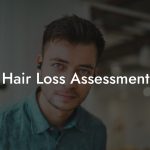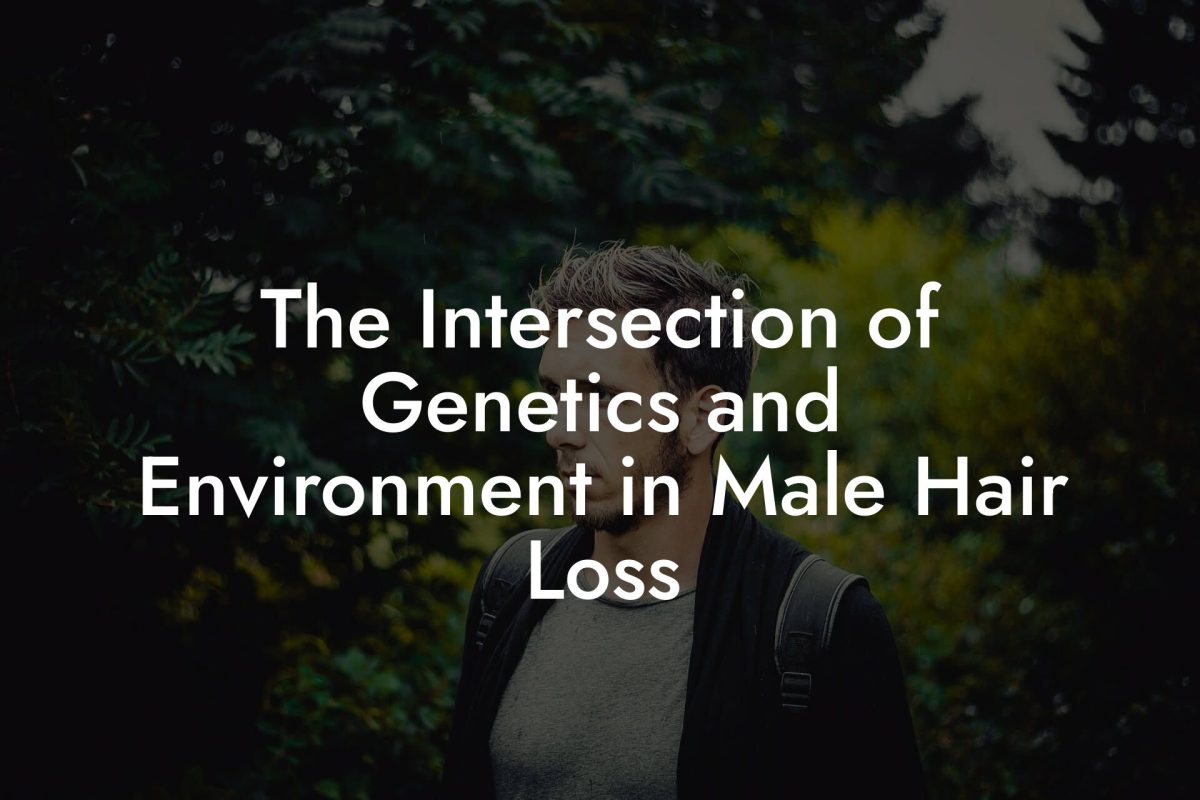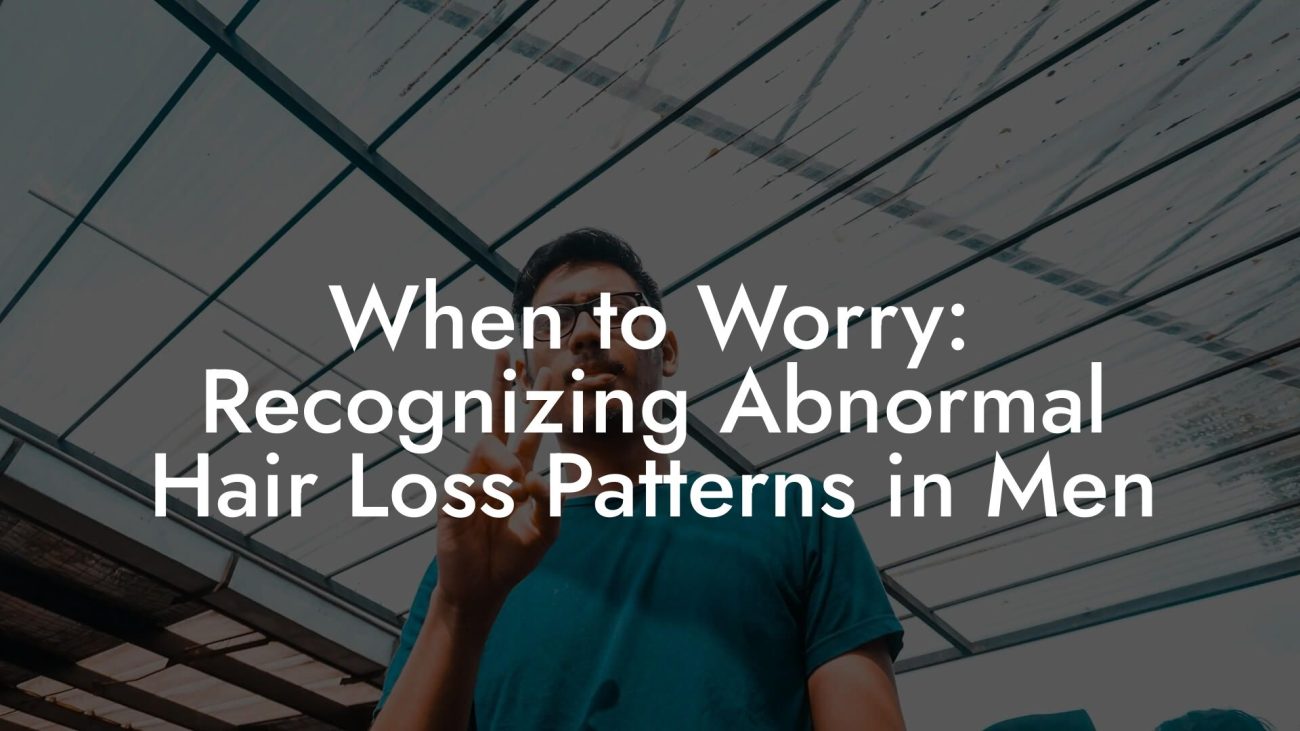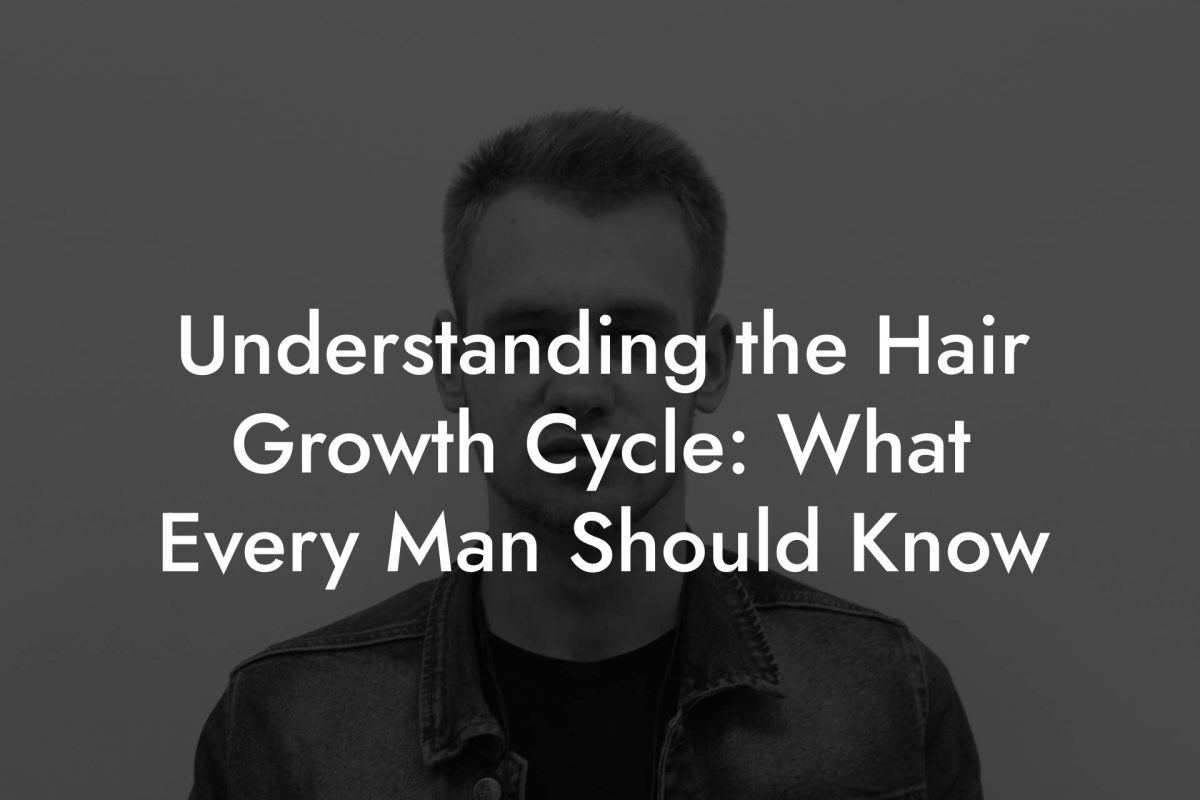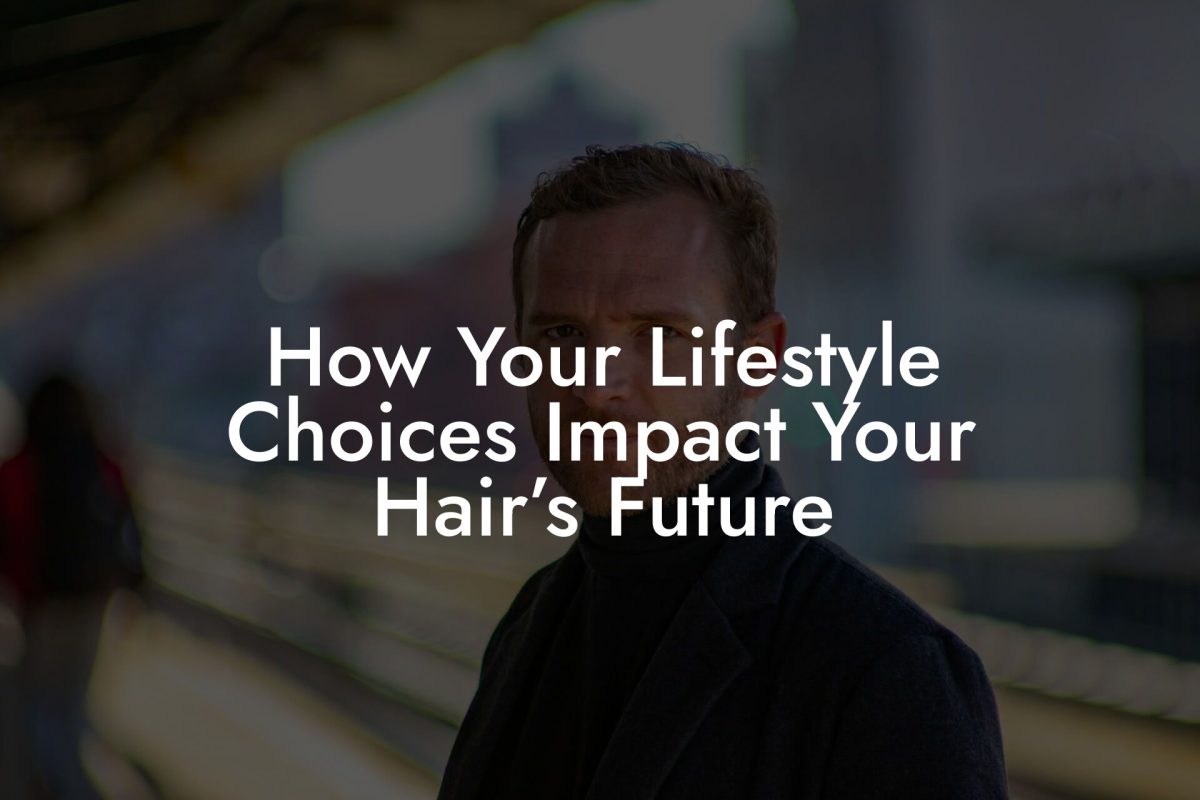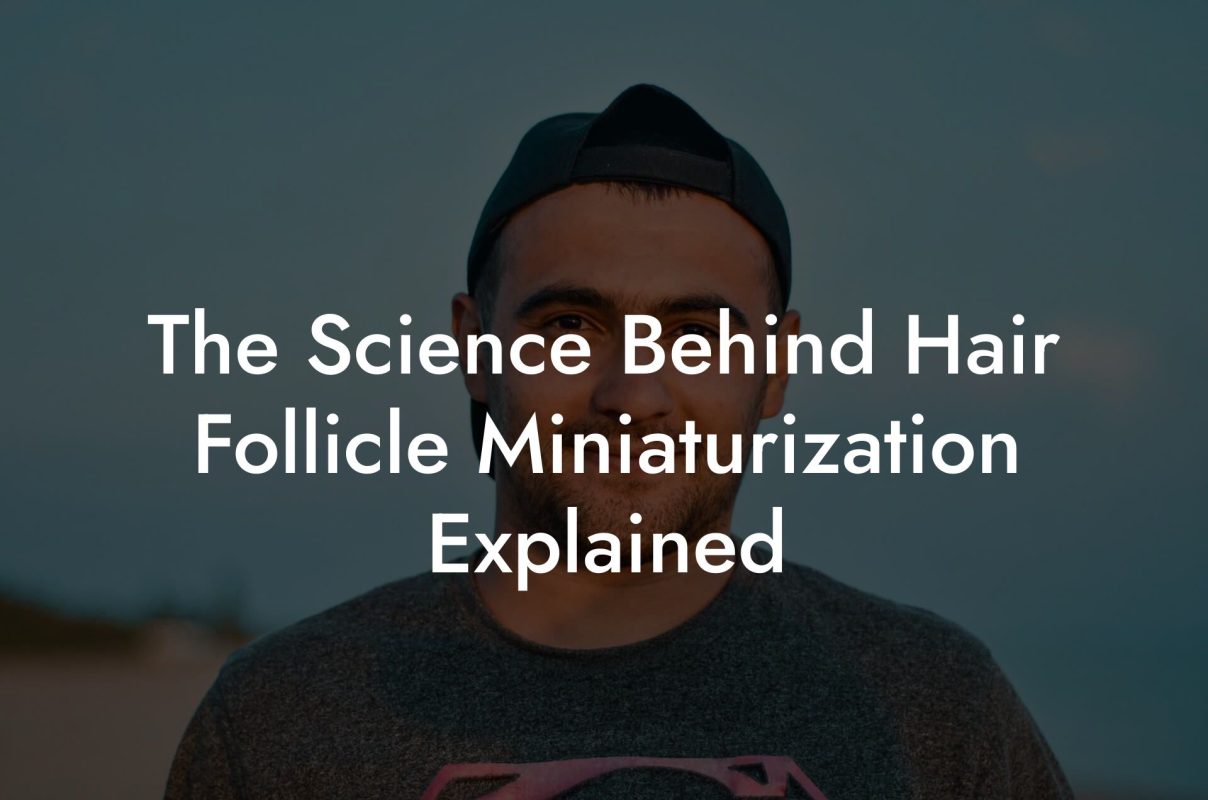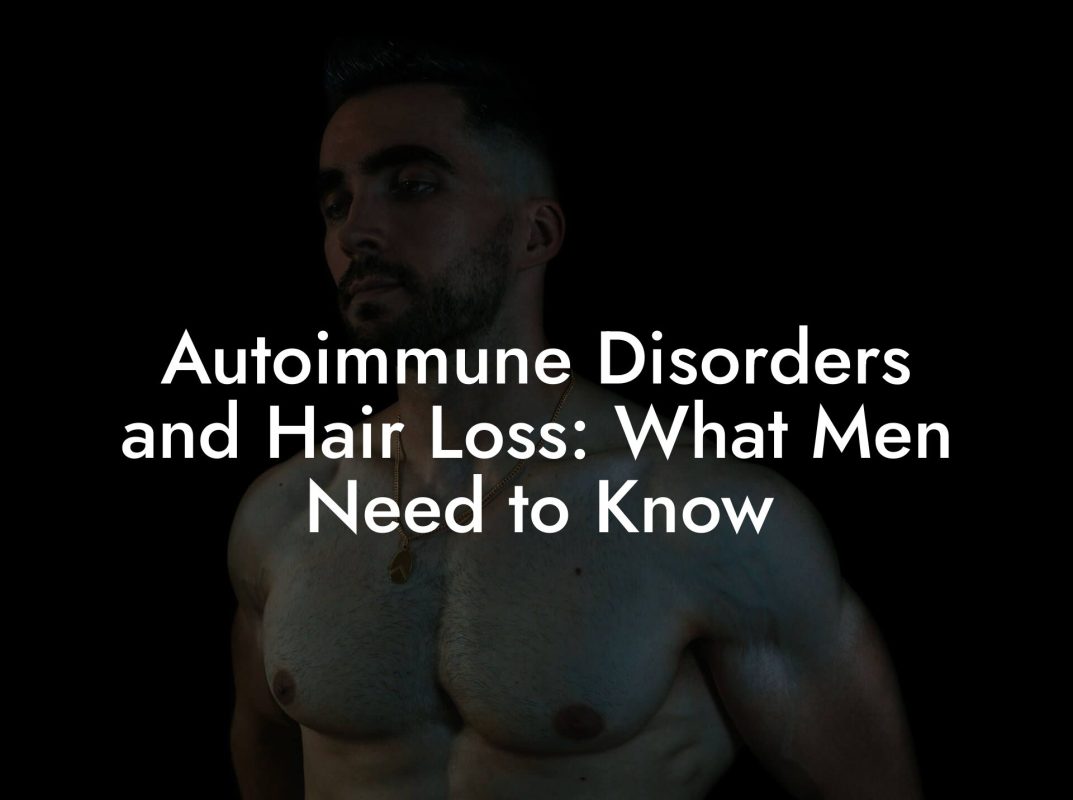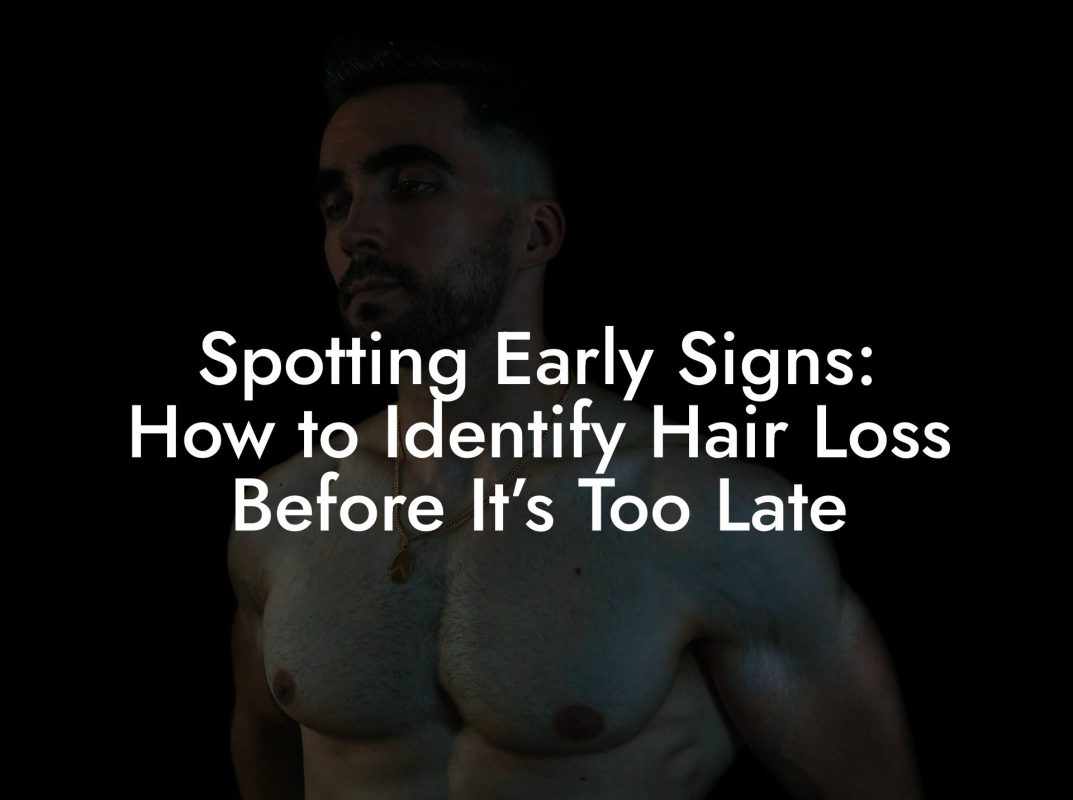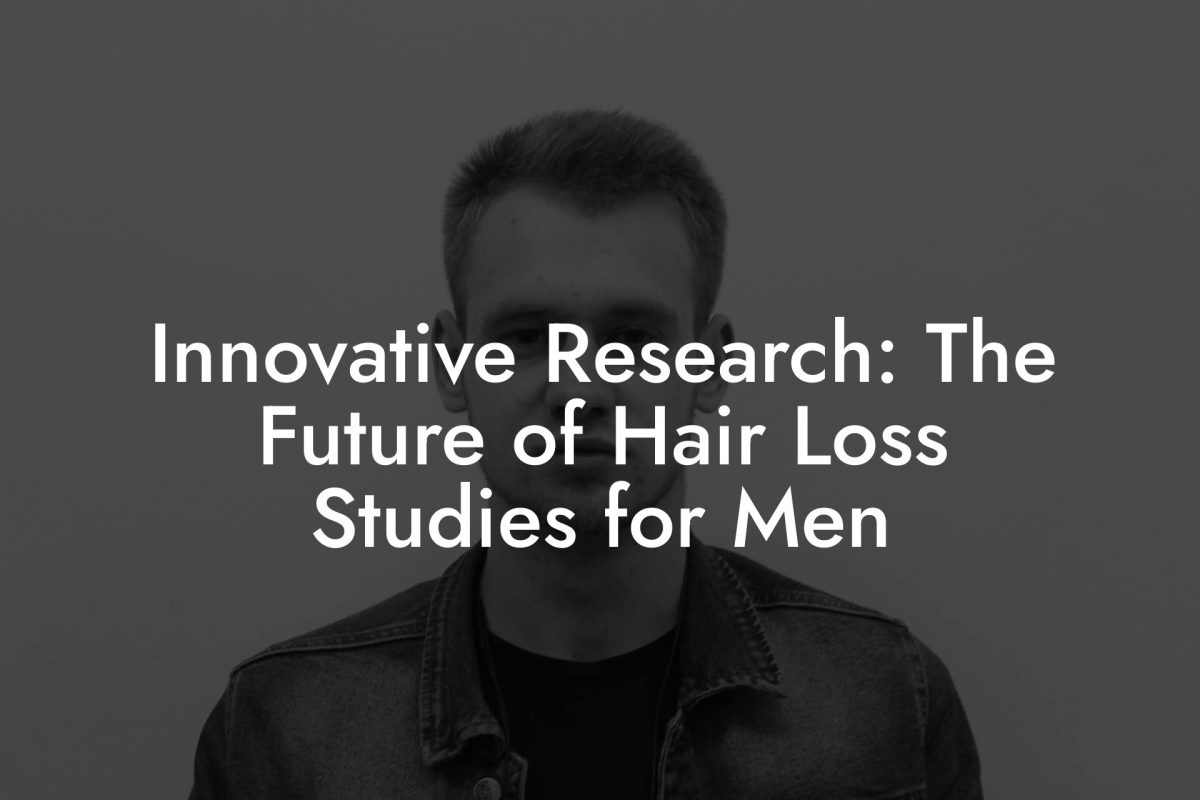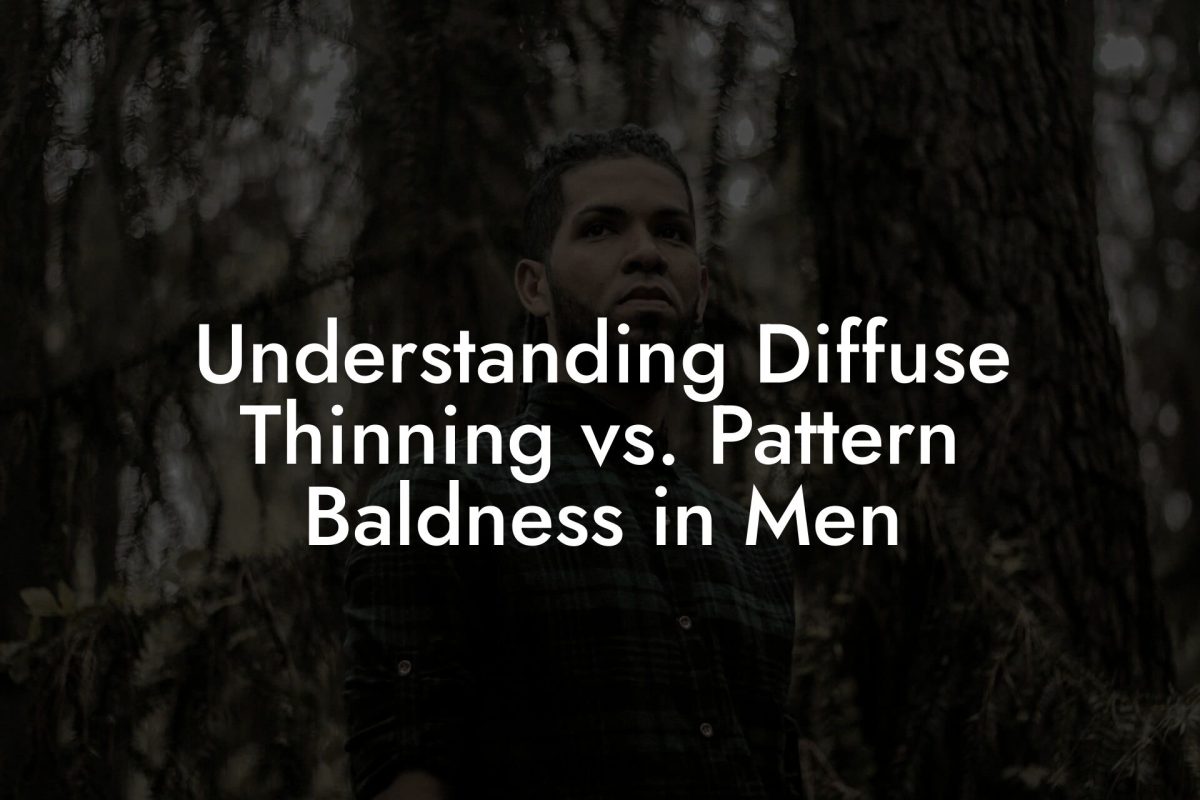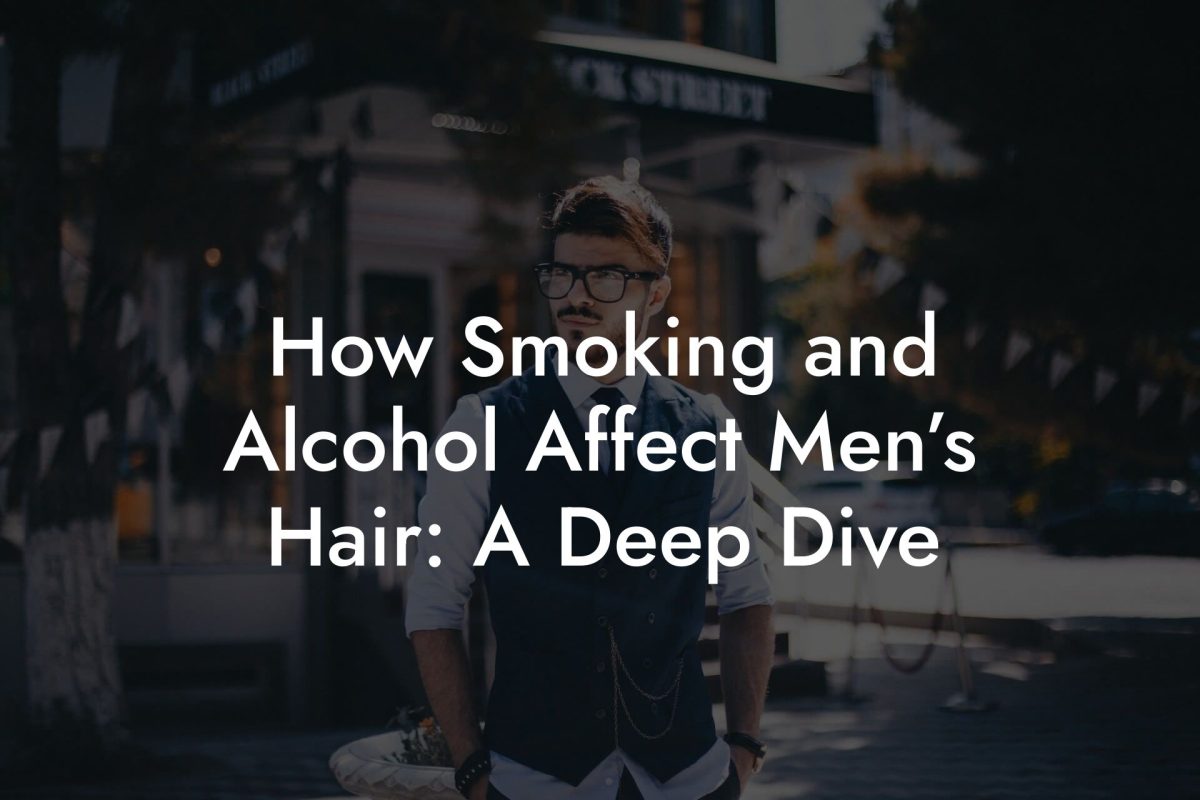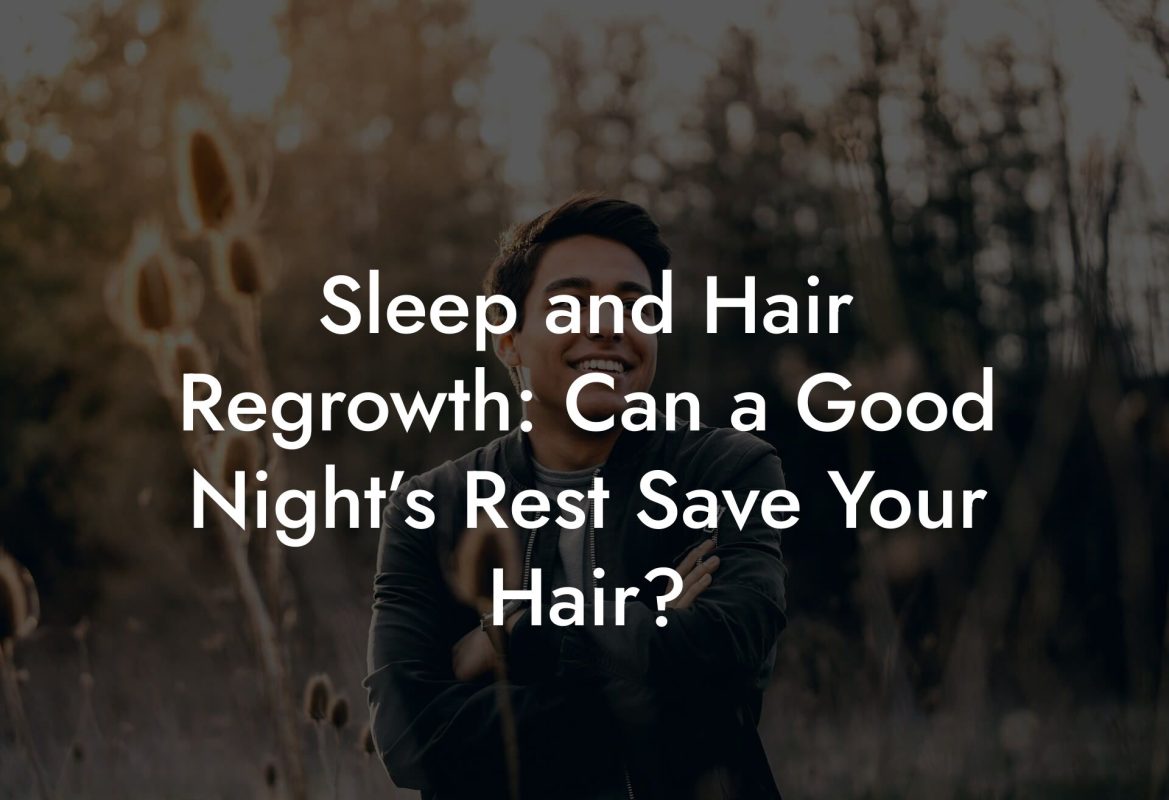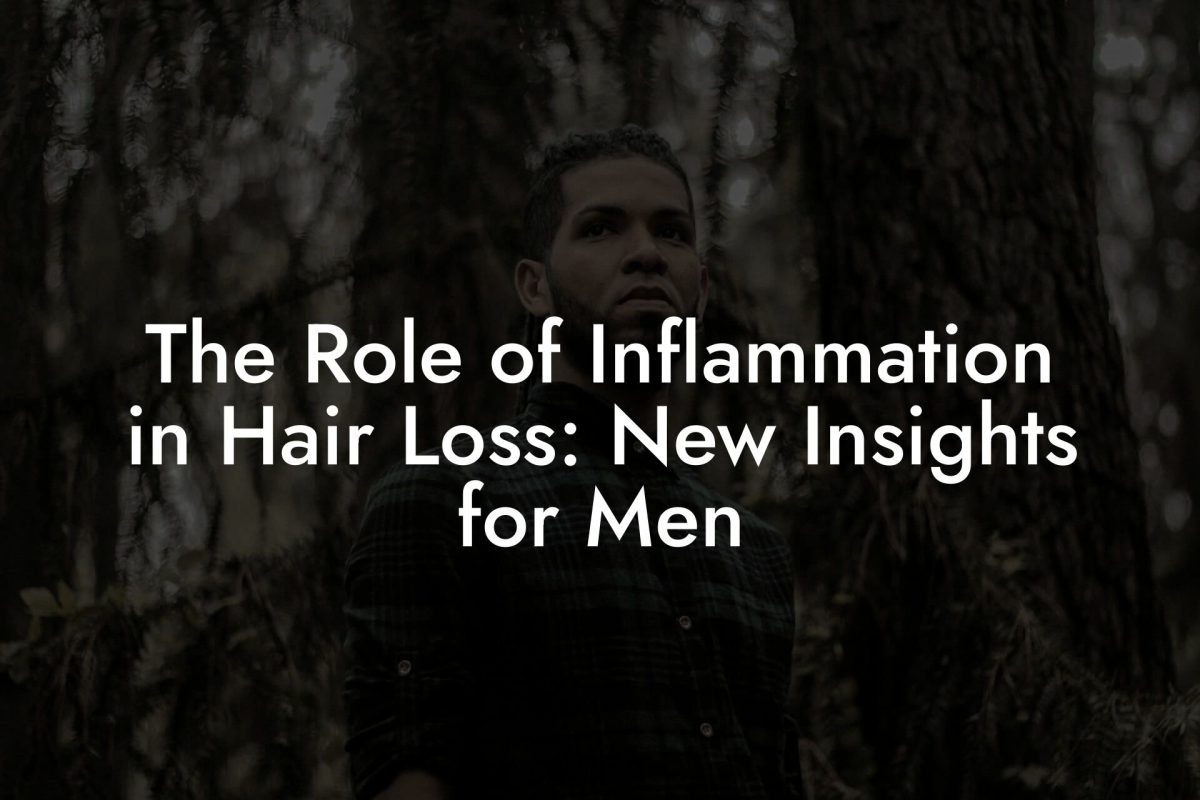Hair Loss Library
Why Am I Losing Hair? Unpacking the Science Behind Men’s Hair Loss
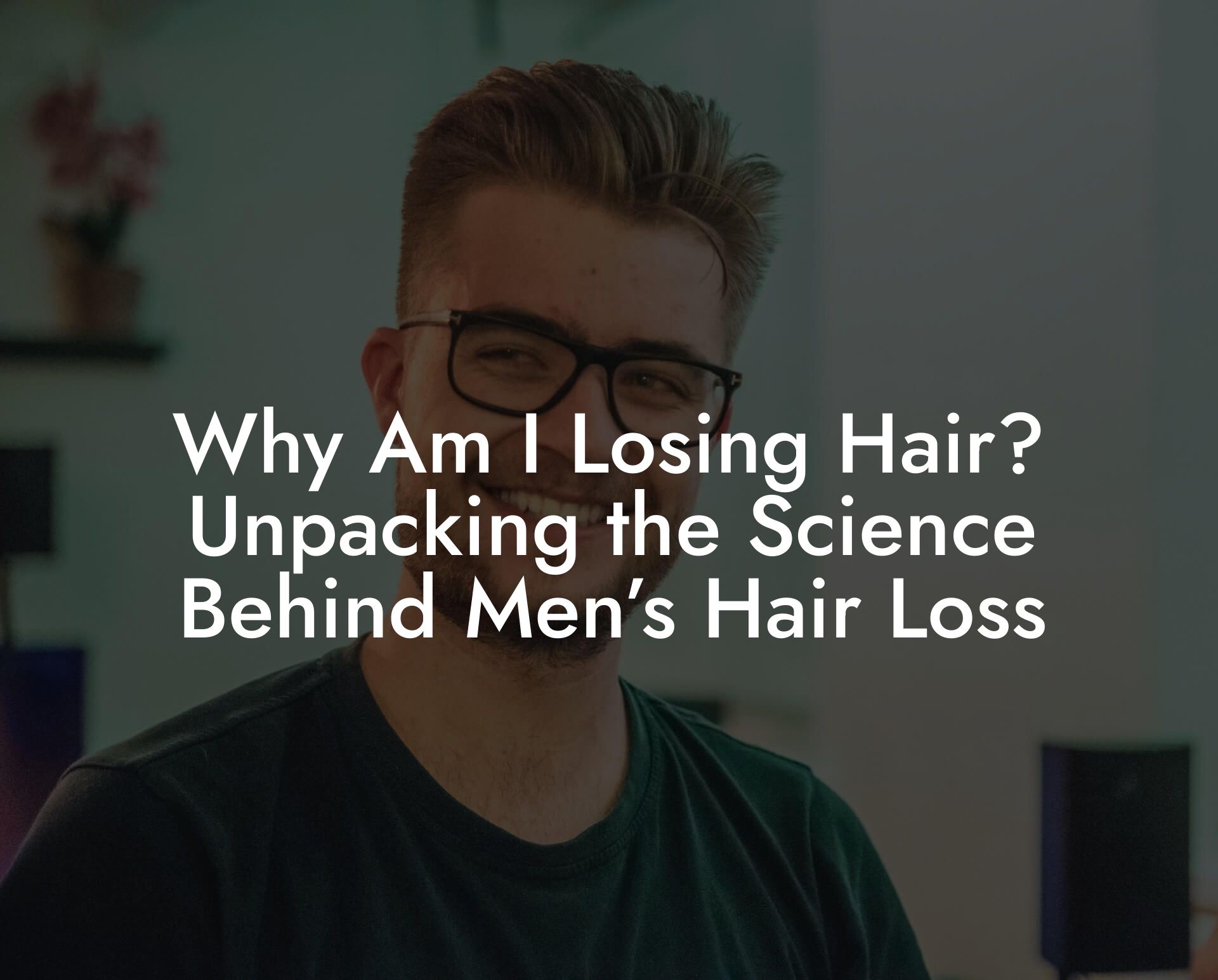
Ever catch your reflection in the mirror and wonder, "Why am I losing hair?" You're not alone. Grooming gurus and science buffs alike are now diving deep into the mysteries of mens hair loss. At Mane Matrix, we’re not here to prescribe expensive medical treatments or hide behind complicated jargon. We're here to decode the science behind hair loss in a way that’s as engaging, humorous, and downright relatable as your favorite meme. Buckle up as we explore genetics, hormones, lifestyle choices, and even some surprisingly simple fixes to help you reclaim your hair’s former glory.
Decoding the Mystery: What Causes Hair Loss in Men?
Hair loss in men can feel like that unexpected plot twist in your favorite binge-worthy series—you never really see it coming. But as it turns out, the reasons behind thinning hair are a mix of science, genetics, and lifestyle choices. Let’s break it down.
Genetics is often the headliner (pun intended). Male pattern baldness, technically known as androgenetic alopecia, runs in families. If your dad, grandpa, or even your great-uncle sported a receding hairline, chances are you might be in line for the same transformation—albeit with your unique twist.
Hormones take center stage as well. Dihydrotestosterone (DHT) is like that overly enthusiastic friend who oversteps boundaries. When your body converts testosterone into DHT, it can bind to hair follicles and eventually shrink them, making them less capable of producing strong, thick hair.
Lifestyle factors such as stress, diet, and even the shampoo you choose, can speed up or slow down hair loss. Chronic stress triggers hormone surges that can shock your hair follicles into early retirement. Meanwhile, a nutrient-poor diet leaves your hair starved for the vitamins and proteins it needs to flourish. And yes, even the regular use of harsh hair products can contribute to the decline.
Understanding these factors is the first step in gaining control over your mane. After all, it’s not just about vanity—it’s about understanding your body’s signals and taking charge of your hair’s destiny.
The Science Behind the Follicle Frenzy
Let’s dive deeper into the microscopic world of hair follicles, where the drama truly unfolds. Each hair on your head grows from a tiny follicle, which acts like a mini factory producing hair strands. And if that factory starts to malfunction, you end up with less hair on top of your head and more on your shoulders (metaphorically speaking, of course).
Hair Growth Cycle: Every hair strand goes through three main phases: anagen (growth), catagen (transition), and telogen (resting). In a healthy head of hair, around 85-90% of follicles are actively growing during the anagen phase. But in men experiencing hair loss, the anagen phase shortens while the telogen phase is prolonged, causing follicles to produce thinner, shorter hairs until they eventually stop producing hair altogether.
DHT and Its Role: Back to our uninvited guest—DHT. As men age, increased androgen levels can lead to more DHT production. This hormone is particularly pesky because it clings to genetically susceptible hair follicles, gradually shrinking them. Over time, these overworked follicles produce finer hairs and eventually go dormant. This scientific process is why therapies aimed at reducing DHT levels (like finasteride) can sometimes help in slowing hair loss.
Think of your hair follicles like a well-orchestrated symphony. When everything works harmoniously, you have a full, lush mane. But if DHT and other factors disrupt the rhythm, the result is a performance that falls flat—cue the dramatic music and a slow fade-out of hair.
Hormones: The Unsung (and Occasionally Loud) Players
Hormones are the behind-the-scenes directors that dictate many of your body’s functions, including the fate of your hair. And while they’re great at managing countless processes, sometimes they overact and steal the spotlight—in a bad way.
DHT: The Double-Edged Sword
Testosterone is essential for many male characteristics and overall health. However, when it gets converted into DHT, the tables can turn. While DHT is crucial for developing male traits during puberty, it can later become a saboteur, binding to hair follicle receptors and triggering a mini-rebellion that leads to hair thinning and loss.
Estrogen: Not Just a Ladies’ Hormone
Surprisingly, estrogen also plays a protective role for hair, even in men. Estrogen helps to prolong the anagen phase of the hair cycle, ensuring that your locks stay in their prime for longer. Unfortunately, as you age, a decrease in estrogen levels can remove this protective effect, leaving your hair more vulnerable to the ravages of DHT and time.
Maintaining hormonal balance is key. Think of it as keeping a group chat in check—when everyone plays nice, the conversation flows smoothly, but if one member starts spamming out of control, the whole group suffers.
Digging Into Diet and Lifestyle: Fueling or Failing Your Follicles
Ever heard the phrase, “You are what you eat”? Turns out, your hair agrees. Nutrition and overall lifestyle directly influence the health of your hair follicles. Let’s explore some key factors that can either fuel your follicle factories or set them on a path to decline.
The Diet Dilemma
Your hair isn’t just made of keratin—it’s also a reflection of your overall nutrient status. Diets that are low on protein, iron, zinc, and essential fatty acids can lead to hair that’s brittle, thin, and overall lackluster. On the flip side, a balanced diet rich in leafy greens, fruits, lean proteins, and healthy fats can give your hair the nutrients it craves.
Consider incorporating foods like salmon, spinach, eggs, and avocados into your meals. Not only do they support hair health, but they also double as your new Instagram-worthy smoothie bowl ingredients. Remember, your hair is a direct mirror of your inner health, and a well-fed body is a boon for your burgeoning mane.
Stress: The Invisible Thief
Stress is that pesky friend who overstays their welcome and leaves a mess behind. Chronic stress can push more hair follicles into the telogen (rest) phase, triggering a condition known as telogen effluvium. This sudden shift often leads to noticeable shedding and thinning, particularly during periods of high stress—whether it’s work deadlines, personal drama, or just the chaos of modern life.
Finding effective ways to manage stress, whether through mindfulness, exercise, or simply taking time for yourself, isn’t just good for your sanity—it’s also essential for keeping your hair looking its best.
Exercise and Hydration: The Dynamic Duo
Regular exercise improves blood circulation, ensuring that your hair follicles get the oxygen and nutrients they need to thrive. Paired with proper hydration, which keeps tissues well-lubricated and healthy, exercise can enhance the overall environment for hair growth. So lace up those sneakers and drink up—you might not get a six-pack overnight, but your hair will thank you.
Medical & Technological Interventions: Modern Solutions for Thinning Hair
If you’ve tried every home remedy and natural supplement, you might be considering a medical boost. The good news is that modern science offers a range of treatments that cater to every stage and severity of hair loss.
Finasteride and Minoxidil: The Dynamic Duo of Hair Loss Treatment
Finasteride works by blocking the enzyme responsible for converting testosterone into DHT, effectively reducing the hormone's availability to wreak havoc on your hair follicles. Minoxidil, on the other hand, stimulates hair growth by increasing blood flow to the scalp. Used in tandem, these treatments have been shown to slow, and in some cases, reverse hair loss.
However, as with your favorite influencer’s product endorsements, these treatments come with their nuances. It’s essential to consult with a healthcare provider to understand the proper usage, potential side effects, and expected outcomes before diving in.
Platelet-Rich Plasma (PRP) Therapy: Your Blood’s Glow-Up
Imagine giving your hair follicles a VIP treatment with your very own concentrated platelets. PRP therapy involves drawing a small amount of your blood, processing it to concentrate the platelets, and then injecting it back into your scalp. The growth factors in the platelets can stimulate the hair follicles, potentially leading to thicker, healthier hair growth.
Low-Level Laser Therapy (LLLT): Shining a Light on Hair Regrowth
Say goodbye to dark, dreary days—LLLT uses light energy to stimulate cellular activity and boost hair follicle metabolism. Available in the form of caps, combs, or in-office devices, laser therapy offers a non-invasive way to potentially reignite dormant hair follicles. It's like giving your scalp a refreshing power-up without any side effects that scream ‘laboratory experiment’.
While these advanced treatments are promising, they’re not magic bullets. Like any science experiment, patience, persistence, and the guidance of a medical professional are key components to success.
Natural and Integrative Approaches: When Less is More
Every now and then, you might prefer to steer clear of medical interventions and lean into nature’s remedies—a sort of do-it-yourself approach to pampering your follicles. Natural and integrative methods can often complement medical treatments or serve as standalone strategies for those in the early stages of hair loss.
Herbal Supplements and Essential Oils
Herbs like saw palmetto, rosemary, and ginseng have been hailed in holistic circles for their potential to naturally inhibit DHT production. Essential oils crafted with these herbs, when massaged into your scalp, might stimulate circulation and foster a healthier environment for hair growth. Just remember: consistency is key, and a little goes a long way.
Scalp Massage and Acupressure
A simple, yet effective, scalp massage not only feels incredibly relaxing but also improves blood flow to the hair follicles. Incorporating acupressure techniques during your massage can release tension, reduce stress, and potentially spark new life into dormant follicles. It’s like a spa day for your scalp—your hair will love the extra attention.
Mind-Body Techniques for Hair Health
Believe it or not, what happens in your mind can directly influence your hair. Practices like yoga, mindfulness meditation, and deep breathing exercises can significantly reduce stress levels. As we’ve seen, stress is a major culprit in hair loss, so giving your mind some downtime can translate into a healthier, happier mane. Embrace these practices not just as a way to calm your nerves, but as an investment in your hair’s future.
Hormonal Health, Genetics, and Beyond: The Bigger Picture
Hair loss isn’t isolated to the scalp—it’s often a mirror reflecting your overall health and wellbeing. The interplay between your hormones, genetics, and even your immune system can contribute to the complex puzzle of hair loss.
Understanding Your Genetic Blueprint
Your DNA is like the instruction manual for your body, and for many men, it comes with a chapter dedicated to hair loss. While you can’t change your genetic makeup, understanding your predisposition can empower you to take preventive measures early on. Personalized testing and consultations can offer insights into your genetic risk factors and guide you toward interventions that best suit your individual hair loss journey.
Autoimmune Conditions and Hair Loss
In some cases, the immune system can mistakenly target hair follicles, leading to conditions such as alopecia areata. This autoimmune response can result in patchy hair loss that may require a different therapeutic approach. If you suspect that an autoimmune condition might be behind your hair loss, it's crucial to get a proper diagnosis so that the treatment can be tailored to your specific situation.
Environmental Factors
From pollution to UV radiation, everyday environmental factors can also contribute to hair damage and loss. Protecting your scalp with hats, using leave-in conditioners with UV protection, and maintaining a clean, toxin-free hair care regimen can help mitigate these external influencers.
All of these elements—genetic predisposition, hormonal fluctuations, immune responses, and environmental stressors—combine to paint a complex picture of hair loss. At Mane Matrix, we believe that embracing this complexity is the first step in crafting a personalized game plan to keep those locks looking lush.
Customized Hair Care Routines: Tailor-Made Fixes for Every Mane
Not all hair is created equal, and neither are the needs of hair experiencing loss. Crafting a personalized hair care routine is essential to preserving what you have while working to restore what was lost. Let’s talk practical tips that can slot seamlessly into your daily routine, no matter how hectic your schedule is.
Shampoo and Conditioner: Quality Over Quantity
Selecting the right shampoo and conditioner can make all the difference. Look for products that are sulfate-free, enriched with natural oils, and formulated to soothe the scalp. These ingredients not only cleanse and strengthen your hair but also foster an optimal environment for hair regrowth. Think of it as giving your scalp a nutritious breakfast every morning.
Scalp Treatments and Serums
Targeted scalp treatments can help nourish and revitalize hair follicles. Serums containing ingredients like caffeine, biotin, and peptides can help stimulate growth by improving blood circulation and reinforcing the hair shaft from within. For those extra tough days, a weekly scalp mask might be just the treat your follicles need to bounce back.
Styling Tools and Techniques
Heat styling tools can contribute to hair damage and breakage. Whenever possible, embrace air drying and use heat protectant products when you do need to style. Moreover, adopting gentle techniques—such as avoiding tight hairstyles that pull on the roots—can preserve your hair’s integrity over time.
Remember, consistency is key. A well-curated hair care regimen isn’t just a luxury; it’s an investment in your confidence and overall self-expression.
Resources and Community Support: Your Next Steps
Your journey to understanding and addressing hair loss doesn’t have to be a solo expedition. At Mane Matrix, we believe in the power of community, shared experiences, and staying informed. Whether you’re diving into our blog for the latest research, joining online forums to connect with others facing similar challenges, or exploring personalized advice from hair care professionals, there are countless resources at your fingertips.
Here are some actionable next steps:
- Join a Community: Look for online groups and social media communities where men openly discuss hair loss, share tips, and support one another’s journey toward regaining confidence.
- Stay Informed: Bookmark reputable websites, subscribe to our Mane Matrix newsletter, and follow hair care influencers who blend science with real-world practicality.
- Seek Expert Advice: Consult with a dermatologist or trichologist who specializes in men’s hair loss. Personalized guidance can often reveal insights that generic advice may overlook.
- Explore Your Options: From natural remedies to advanced medical interventions, there’s a spectrum of treatments available. Consider experimenting with a few to determine what best suits your lifestyle and hair type.
Empower yourself with knowledge, connect with like-minded individuals, and take a proactive approach to restoring not only your hair but your self-assurance. Your mane journey is uniquely yours—cherish every step of the way.
Transforming Your Struggle into Strength: Real Stories from the Mane Matrix Community
The real magic happens when we see how others have navigated the ups and downs of hair loss. From overcoming self-doubt to embracing innovative treatments, these stories are a testament to grit, humor, and the relentless pursuit of self-improvement.
The Comeback Kid
Meet Jason—a 32-year-old tech whiz who went from hiding under caps to confidently sporting a revitalized look. After noticing early signs of hair thinning, he explored everything from a revamped diet to the strategic use of minoxidil. With a mix of determination and a dash of humor (he now jokes that he’s “battling gravity one follicle at a time”), Jason has managed to slow his hair loss and even stimulate regrowth in surprising areas.
The Holistic Hero
Then there’s Marcus, whose approach was all about balance. Between intense workdays and a hectic social calendar, Marcus discovered that integrating regular scalp massages, practicing meditation, and even dabbling in acupuncture created a synergy that worked wonders for his hair. His secret? A holistic outlook that treats hair loss as much more than just a cosmetic issue—it’s a journey toward overall well-being.
The Science Savant
And let’s not forget Rob, a self-proclaimed science nerd who dove deep into the research behind hair loss. Rob’s approach combined the latest in laser therapy with a meticulously planned nutritional regimen. With a keen eye for detail, Rob turned his struggle into a science project that not only restored his hair but also provided him with the ultimate conversation starter at every networking event.
These stories highlight that while the path to a fuller head of hair isn’t always straightforward, it is filled with innovation, perseverance, and community support. Every setback can be transformed into an opportunity to learn, adapt, and ultimately triumph.
Your Journey to Empowered Hair Health and Confidence
Understanding why you’re losing hair is the first step in taking control of your story. With scientific insights into genetics, hormones, lifestyle influences, and advanced treatment options, you now have an arsenal of knowledge to help you reclaim your mane. Rather than succumbing to self-doubt or another round of failed home remedies, think of this journey as a dynamic experiment—one where your hair is the ultimate project and you’re the lead scientist.
Every change you make, no matter how small, contributes to a larger narrative: one of resilience, self-discovery, and empowerment. From re-evaluating your diet and adopting a new hair care routine, to exploring cutting-edge treatments that fuse technology with tradition—the choices you make today shape the confidence and strength you’ll carry into tomorrow.
At Mane Matrix, we’re here to guide you every step of the way, offering insights, humor, and a community that gets it. Your hair loss journey isn’t just about the struggle; it’s about uncovering the secrets behind why you’re losing hair and using that knowledge to build a future where you feel confident and in control.
So dive into the science, explore your options, and embrace a holistic strategy that treats your hair as an integral part of your overall health. Your journey to empowered hair health is just beginning—celebrate the progress, trust the process, and remember that a great head of hair might just be around the corner.
Hair Loss FAQs: Your Questions Answered
We know you’ve got questions, and we’re here to deliver answers with a dash of wit and a whole lot of clarity. Check out these frequently asked questions to learn more about the science behind hair loss and how you can take back control of your mane.
1. Why am I losing hair?
Hair loss can result from a combination of genetic predisposition, hormonal imbalances—especially the influence of DHT—stress, nutritional deficiencies, and even lifestyle factors. It’s rarely due to one single factor, which is why a holistic approach works best.
2. Can diet really affect my hair?
Absolutely. A diet lacking in protein, vitamins, and essential fatty acids can leave your hair follicles starved for nutrients, leading to thinner, weaker strands. Conversely, nutrient-rich foods fuel hair growth and overall scalp health.
3. Do treatments like finasteride and minoxidil really work?
Many men see positive results with finasteride (which reduces DHT levels) and minoxidil (which stimulates blood flow to the scalp). However, results vary based on individual factors, and it’s best to consult with a professional before starting any treatment.
4. Are there any natural remedies that can help with hair loss?
Certain herbal supplements and essential oils, like saw palmetto, rosemary, and ginseng, have shown promise. Additionally, practices like scalp massage and stress reduction techniques can complement these natural approaches.
5. How important is stress management in preventing hair loss?
Stress plays a significant role in hair loss. Chronic stress can push hair follicles into a resting phase, leading to increased shedding. Incorporating mindfulness, exercise, and relaxation techniques can mitigate this effect.
6. What advanced treatments are available if natural remedies don’t cut it?
There are several advanced treatments, including Platelet-Rich Plasma (PRP) therapy and Low-Level Laser Therapy (LLLT), which have been effective in stimulating hair regrowth in many cases.
7. Should I see a doctor for hair loss?
If you notice significant hair thinning or sudden hair loss, it’s best to consult a dermatologist or trichologist who can diagnose the underlying causes and recommend a personalized treatment plan.
8. Can hair loss be reversed?
While all hair loss cannot be completely reversed, many treatments and lifestyle changes can slow down progression and even partially restore hair growth in many cases.
Charting a New Course: Tailoring Your Personalized Hair Health Plan
Taking control of your hair loss journey starts with a personalized plan that works for your unique circumstances. Here’s how to develop a strategy that aligns with your lifestyle, goals, and, yes, your sense of humor.
Step 1: Self-Assessment and Research
Begin by assessing your current hair care routine, lifestyle, and medical history. Are you noticing increased shedding during stressful periods? Is your diet lacking in hair-boosting nutrients? Equip yourself with facts and consult reputable sources—knowledge is power.
Step 2: Consultation with Experts
Schedule an appointment with a dermatologist or trichologist. A professional evaluation can pinpoint the underlying causes of your hair loss, whether it’s genetic predisposition, hormonal imbalances, or other factors.
Step 3: Integrate Multidimensional Approaches
Combine medical treatments (if needed) with lifestyle modifications. This might include:
- Using proven topical agents like minoxidil or oral medications such as finasteride.
- Adopting a hair-healthy diet rich in proteins, omega-3 fatty acids, and essential vitamins.
- Implementing stress management techniques like mindfulness meditation, yoga, or regular exercise.
- Exploring complementary treatments like scalp massages or even laser therapy.
Step 4: Monitor and Adapt
Keep a journal of your routine, note any changes, and adjust as necessary. Hair regrowth is often a slow process, so patience and consistency are key. Celebrate small wins along the way, whether it’s noticing less shedding or finally enjoying a day without a cap.
This personalized plan is a living document—flexible enough to change as your needs evolve but robust enough to give you clear guidance. As you experiment and discover what works best for you, you’re paving the way to not just a fuller head of hair, but a more confident version of yourself.
Bridging the Gap: From Science to Your Daily Routine
The journey from understanding the science behind hair loss to implementing effective daily routines is an exciting, sometimes bumpy ride. Yet, every step you take enriches your knowledge and helps tailor a regimen that genuinely works.
Consider the small changes you can make every day—from adjusting your morning routine to include a nutrient-packed breakfast, spending a few minutes on a relaxing scalp massage, or scheduling regular check-ins with your hair care professional. It’s these incremental adjustments that add up, transforming a perceived weakness into a strength that fuels your new chapter.
By blending modern science with practical, everyday habits, you’re not only addressing hair loss—you’re enhancing your overall well-being. Your journey is a testament to the power of information, self-care, and the relentless pursuit of confidence.
If you loved this article... Dive deeper into the world of mens hair loss with our most popular sections. If there is anything you think is missing or anything you would love for us to write about, just give us a shout.
Why Am I Losing Hair? Unpacking the Science Behind Men’s Hair Loss
The Ultimate Guide to Male Pattern Baldness: Causes and Clues
Hormones & Hair: How Testosterone Impacts Hair Loss in Men
Genetics vs. Lifestyle: What’s Really Causing Your Hair Loss?
Stress and Strands: Exploring the Link Between Anxiety and Hair Loss
Decoding Androgenetic Alopecia: What Every Man Needs to Know
How Aging Affects Your Hair: Understanding the Natural Process
The Role of Diet in Hair Health: Nutrients That Prevent Hair Loss
Environmental Factors: How Pollution and Toxins Trigger Hair Loss
Medical Conditions and Hair Loss: What’s Normal and What’s Not?
The Impact of Medications on Men’s Hair: What You Should Ask Your Doctor
Unraveling Scalp Health: Signs Your Scalp Needs Extra Care
Hair Loss Myths Busted: Separating Fact from Fiction
The Role of Inflammation in Hair Loss: New Insights for Men
Sleep and Hair Regrowth: Can a Good Night’s Rest Save Your Hair?
How Smoking and Alcohol Affect Men’s Hair: A Deep Dive
Understanding Diffuse Thinning vs. Pattern Baldness in Men
Innovative Research: The Future of Hair Loss Studies for Men
Spotting Early Signs: How to Identify Hair Loss Before It’s Too Late
Autoimmune Disorders and Hair Loss: What Men Need to Know
The Science Behind Hair Follicle Miniaturization Explained
How Your Lifestyle Choices Impact Your Hair’s Future
Understanding the Hair Growth Cycle: What Every Man Should Know
When to Worry: Recognizing Abnormal Hair Loss Patterns in Men
The Intersection of Genetics and Environment in Male Hair Loss
